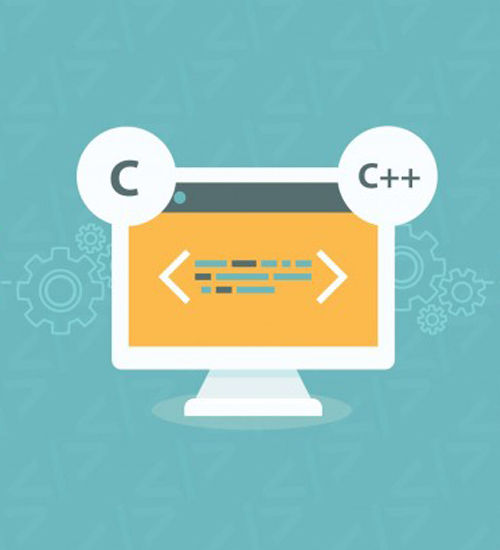 +91 75501 66012
+91 75501 66012  contact@greenstechnologys.com
contact@greenstechnologys.com

The C programming language is one of the most popular and widely used programming languages. It is a general-purpose programming language and there are very few computer systems in existence that are not set up for its use (i.e. where a C compiler does not exist).
This C programming tutorial and course introduces you to the basics of programming in C. You will learn how programming languages work with data, what program flow is, and how to use functions, methods and routines. You will also get step-by-step instructions on how to create simple C programs and how to run them all while you learn C programming.
Mon – Fri ( 4 Weeks ) | 08.00 AM – 10.00 AM Time (IST) C Programming C++
Sat – Sun ( 6 Weeks ) | 09.30 AM – 06.00 PM Time (IST) C Programming C++
| Module | Topic | Content Coverage |
|---|---|---|
Module 1 |
Introduction to C Programming Language |
|
|
||
|
||
|
||
|
||
|
||
|
||
|
||
|
||
Module 2 |
Functions |
|
|
||
|
||
|
||
Storage Classes |
|
|
|
||
|
||
|
||
Arrays |
|
|
|
||
|
||
|
||
|
||
|
||
Module 3 |
Pointers |
|
|
||
|
||
|
||
|
||
|
||
|
||
|
||
|
||
|
||
|
||
Module 4 |
Pointers |
|
|
||
|
||
|
||
Dynamic Address Allocation |
|
|
|
||
|
||
|
||
|
||
|
||
|
||
|
||
|
||
|
||
|
||
Module 5 |
Structures |
|
|
||
|
||
|
||
|
||
|
||
|
||
|
||
|
||
|
||
|
||
|
||
|
||
Module 6 |
File Handling |
|
Module 8 |
Basic Data Structures |
|
|
||
|
||
|
||
Module 9 |
Data Structures |
|
|
||
|
||
|
| Module | Topic | Content Coverage |
|---|---|---|
Module1 |
Concepts Of Object Oriented Programming |
|
|
||
|
||
|
||
Applying Concepts Of Object Oriented Programming |
|
|
|
||
Implementing Classes and Objects |
|
|
|
||
|
||
|
||
|
||
|
||
|
||
|
||
Module2 |
Functions |
|
|
||
|
||
|
||
|
||
|
||
Constructors and Destructors |
|
|
multiple Constructors, concept of copy-constructor |
||
|
||
|
||
|
||
|
||
Module 3 |
Implementing Inheritance |
|
|
||
|
||
Operator Overloading |
|
|
|
||
|
||
|
||
|
||
|
Module 4 |
Polymorphism |
|
Module 5 |
Introduction to Exception Handling |
|
Module 6 |
C++ I/O Streams And files |
|
|
||
Generic Programming Using templates |
||
|
||
|
